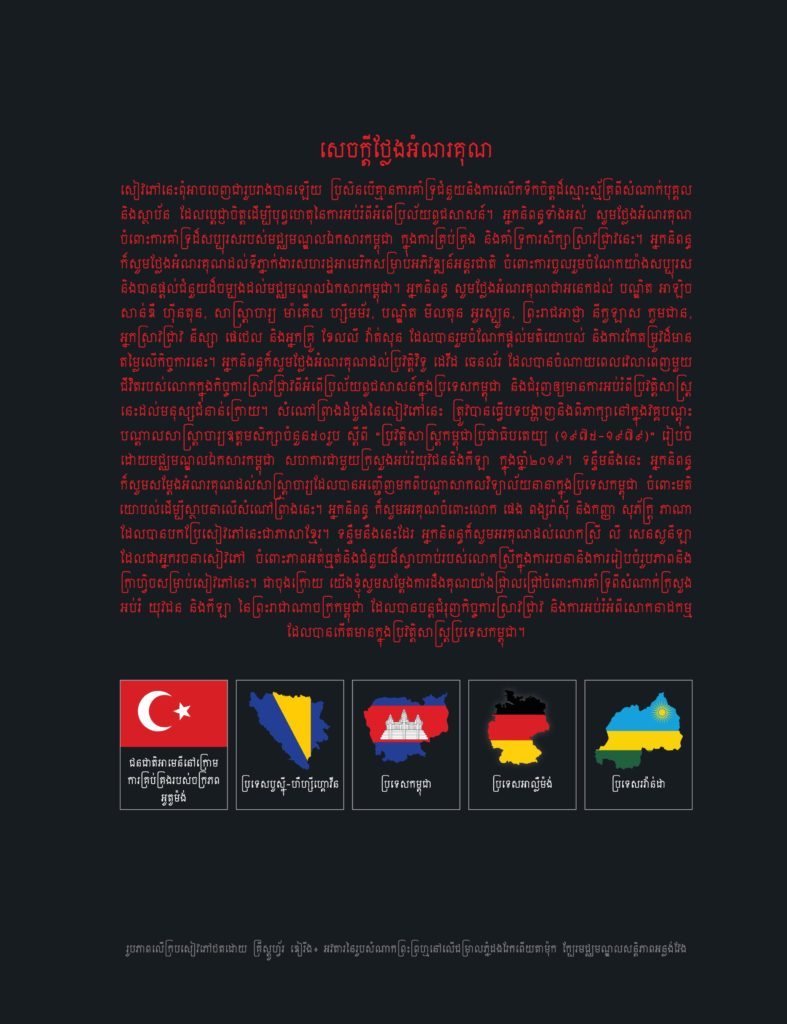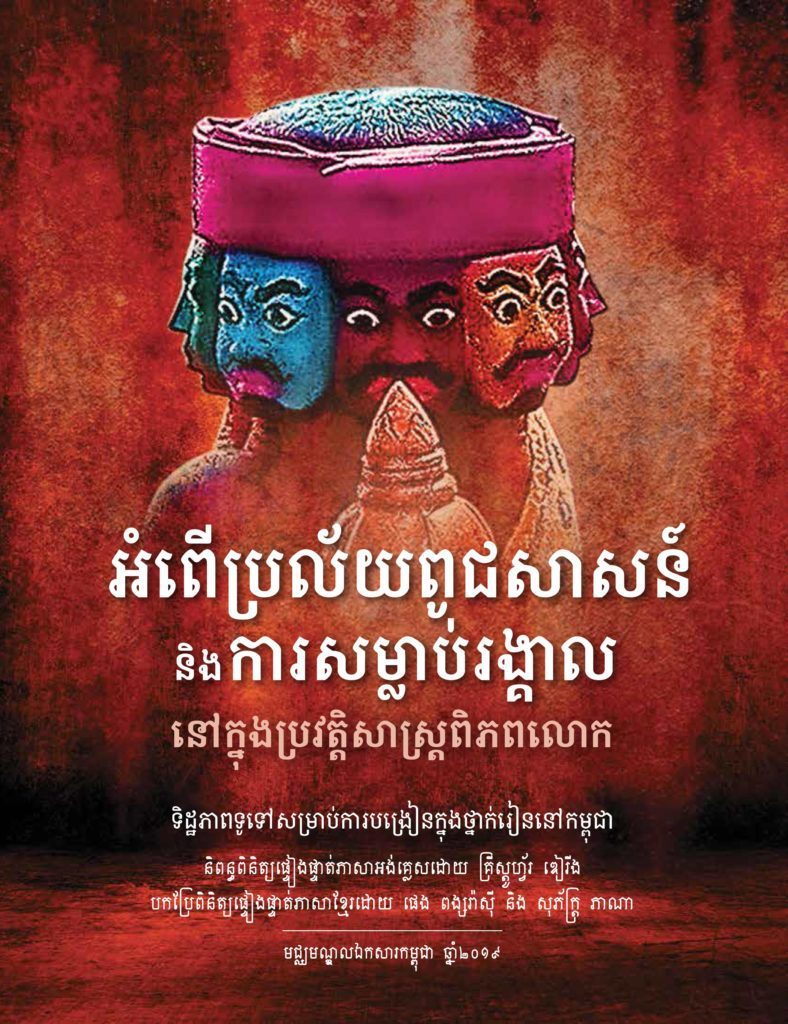Phnom Penh: DC-Cam in cooperation with the Ministry of Education, Youth and Sport proudly announced the program to publicize the book “Genocide and Mass Atrocities in World History”.
This book will contribute to educating current and future Cambodian youths on genocides that have occurred in world history.
The launch will be Indradevi High School in Tuol Kork, Phnom Penh, at 8 am on the 22nd.
The book is intended to provide information for teachers to use in educating students about mass killings and how the experience of Cambodia during the Khmer Rouge regime is related to the experience and suffering of people in other countries.
This book is designed to facilitate teachers in planning lessons about five case studies: Armenians under the Ottomans, Nazi Germany, Cambodia Under the Khmer Rouge, Bosnia-Herzegovina and Rwanda.
Although the five case studies have different ways of explaining the history of genocide, these cases provide comparisons and encourage debate. Each chapter begins with a brief lesson, which includes the teacher-teacher aids for references, questions and answer for discussion.
Each chapter also includes in-depth “detailed lessons” that teachers can learn through questions and topics with this activity for discussion.
Dr. Hang Chuon Naron, Minister of Education, Youth and Sport mentioned in the book’s preface, “Education cannot be medicine (it) does not cure all inhumane things, but education is a key factor that drives the overall effort”
Youk Chhang, from the Documentation Center of Cambodia, believes that this book will play a vital role in Cambodia’s efforts to socially evolve. He said: “Cambodia cannot escape its history, but Cambodia must not be a slave to its history. . Cambodia’s future is defined not only by coping with its past and healing itself, but also by made by assisting other nations, and the world in combating massacres and unreasonable extremism”
The book is partly funded by the US State Department’s Funding (Documentation and Democracy) with support from the US State Department and the US Agency for International Development. RASMEI


